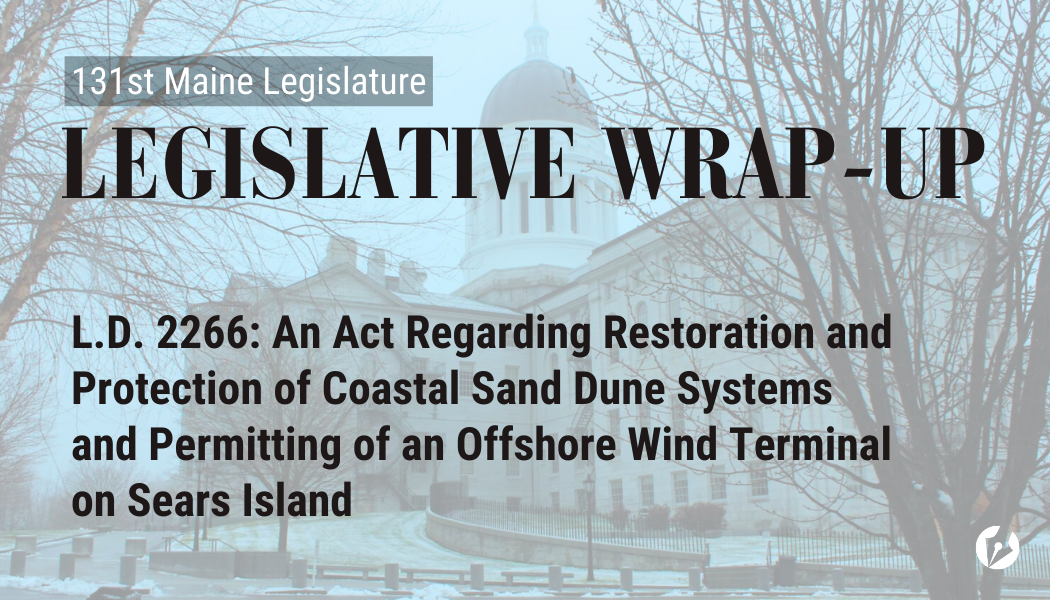Lawmakers changed course and cleared a major hurdle for the development of an offshore wind terminal on Sears Island with the approval of L.D. 2266, which exempts the site from rules governing development on sand dunes and sets aside $1 million for a sand dune restoration fund.
Like this bill, Gov. Janet Mills’ selected location for a windmill assembly and transportation hub received intense scrutiny from some environmentalists, local residents and tribal members.
They said the location and exemptions will degrade Sears Island’s sand dune habitat and defenses against coastal flooding, arguing the port should be constructed at nearby Mack Point, which was also up for consideration.
Other environmentalists raised similar concerns but supported the project, highlighting the urgent need to address climate change and the influx of high-paying union jobs the terminal could bring. Other groups have remained neutral and suggested amendments to safeguard natural resources.
Read the full bill on the legislature’s website.
To get a better sense of the debate, here are some excerpts from testimony:
For:
“We have to build a tremendous amount of clean energy infrastructure if we want to have a reasonable shot at stopping the worst effects that are still to come, and offshore wind is by far the largest and most significant piece of the puzzle for Maine.” ~ Scott Cuddy, Maine Labor Climate Council
“The bill, as amended, shows that Maine is capable of making reasonable trade-offs in doing its part to address the existential threat of climate change. Common sense trade-offs like making narrow exceptions for clean energy development of sensitive areas when we’re forced to do so.” ~ Daniel Carson, Bangor
“Offshore wind is essential for Maine to address climate change. Building a port is an indispensable step in developing offshore wind, and benefiting from this generational economic opportunity for Maine’s future.” ~ Jack Shapiro, Natural Resources Council of Maine
Against:
“Everyone that goes there, to this day, feels a reprieve from the pressures of everyday life. It is a haven for children and adults. When you are there, you can literally feel how special it is in your bones. These activities cannot co-occur with a Port Facility.” ~ Chris Buchanan, Searsport
“This proposed policy would set a dangerous precedent for future impacts from any development to coastal ecosystems and runs counter to the efforts of the state and local communities to address the climate crisis.” ~ Pete Nichols, Sierra Club Maine
“We hope the committee will simply stay the course, vote “ought not to pass” at this time, until considerably more information about alternative offshore wind facilities becomes available, and maintain Maine’s existing coastal sand dune system protections.” ~ Stephen Miller, Islesboro Islands Trust







